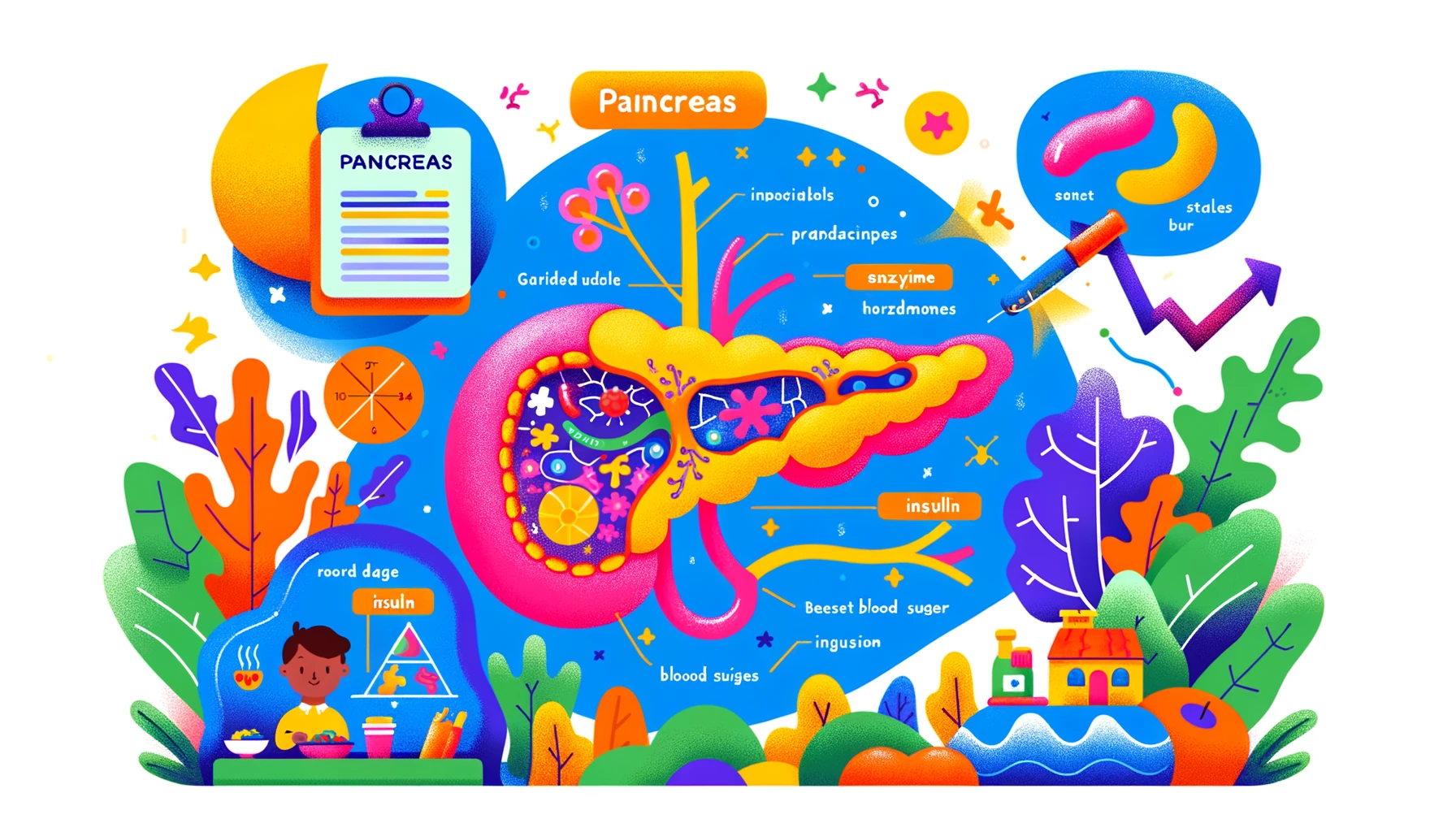How the Pancreas Works: Functions and Importance
How the Pancreas Works: Functions and Importance
Table of Contents
- Introduction to the Pancreas
- Anatomy of the Pancreas
- Exocrine Function of the Pancreas
- Endocrine Function of the Pancreas
- Regulation of Blood Sugar Levels
- Disorders of the Pancreas
- Importance of Pancreatic Health
- Conclusion
- References
How the Pancreas Works: Functions and Importance
Introduction to the Pancreas The pancreas is a vital organ located behind the stomach in the upper abdomen. It plays a crucial role in both the digestive and endocrine systems. This article explores how the pancreas works, highlighting its anatomy, functions, and importance in maintaining overall health.
Anatomy of the Pancreas The pancreas is an elongated, tapered organ that can be divided into three main parts:
- Head: The widest part, located in the curve of the duodenum (the first part of the small intestine).
- Body: The middle section, which lies behind the stomach.
- Tail: The narrow end, which extends toward the spleen.
The pancreas is composed of two types of tissue: exocrine tissue and endocrine tissue, each responsible for different functions.
Exocrine Function of the Pancreas The exocrine function of the pancreas involves the production and secretion of digestive enzymes. These enzymes help break down food in the small intestine and are essential for proper digestion and nutrient absorption. The exocrine pancreas includes:
- Acinar Cells: These cells produce digestive enzymes such as amylase (which breaks down carbohydrates), lipase (which breaks down fats), and proteases like trypsin and chymotrypsin (which break down proteins).
- Ductal Cells: These cells produce bicarbonate, which helps neutralize stomach acid in the small intestine, providing an optimal environment for enzyme activity.
Endocrine Function of the Pancreas The endocrine function of the pancreas involves the regulation of blood sugar levels through the production and release of hormones. The endocrine pancreas consists of clusters of cells known as the islets of Langerhans, which contain several types of hormone-producing cells:
- Alpha Cells: Produce glucagon, a hormone that raises blood glucose levels by stimulating the liver to release stored glucose.
- Beta Cells: Produce insulin, a hormone that lowers blood glucose levels by facilitating the uptake of glucose into cells for energy production or storage as glycogen.
- Delta Cells: Produce somatostatin, a hormone that regulates the secretion of other hormones, including insulin and glucagon.
- PP Cells: Produce pancreatic polypeptide, which helps regulate pancreatic secretion activities and influences gastrointestinal function.
Regulation of Blood Sugar Levels The pancreas plays a critical role in maintaining blood sugar homeostasis. When blood sugar levels rise after eating, beta cells release insulin, which helps cells absorb glucose, thus lowering blood sugar levels. When blood sugar levels drop between meals or during physical activity, alpha cells release glucagon, which signals the liver to release stored glucose, raising blood sugar levels. This delicate balance ensures that the body has a constant supply of energy.
Disorders of the Pancreas Several disorders can affect the pancreas, leading to serious health problems:
- Diabetes Mellitus: A condition characterized by high blood sugar levels due to insufficient insulin production (Type 1 diabetes) or insulin resistance (Type 2 diabetes).
- Pancreatitis: Inflammation of the pancreas, which can be acute or chronic, often caused by gallstones, excessive alcohol consumption, or certain medications.
- Pancreatic Cancer: A malignant tumor of the pancreas, which can interfere with its functions and spread to other parts of the body.
- Cystic Fibrosis: A genetic disorder that affects the exocrine function of the pancreas, leading to thick mucus production and blocked ducts, impairing digestion.
Importance of Pancreatic Health Maintaining pancreatic health is crucial for overall well-being. Healthy lifestyle choices, such as a balanced diet, regular exercise, avoiding excessive alcohol consumption, and not smoking, can help protect the pancreas. Early detection and management of pancreatic disorders are essential to prevent complications and maintain proper pancreatic function.
Conclusion Understanding how the pancreas works is vital for appreciating its role in digestion and blood sugar regulation. The pancreas’s dual functions as both an exocrine and endocrine organ make it essential for overall health. Maintaining pancreatic health through lifestyle choices and regular medical check-ups can help ensure its proper function and prevent disorders.

<ⓒ WizardMedics (wizardmedics.com)>


